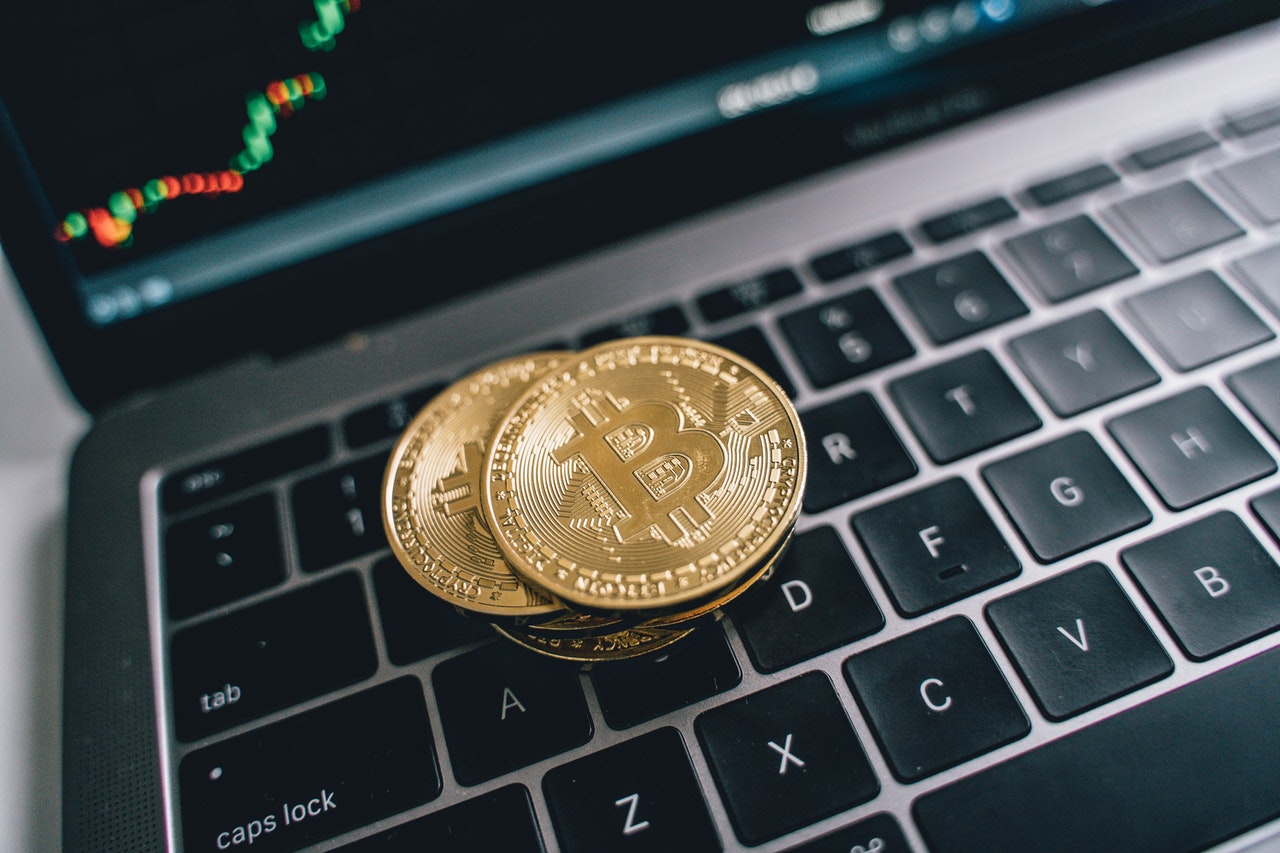12 Factors to Consider When Choosing a Cryptocurrency Exchange

With so many options available, how can you choose the best cryptocurrency exchange app? To make that decision, you’ll need to also research the specific details of each exchange and choose the one that best suits your needs.
There are many factors to consider when thinking about how to choose a cryptocurrency exchange. Here are 12 of the most important:
1. Jurisdiction
This factor is simpler than the rest. It’s a binary, yes or no kind of deal.
Does the exchange serve customers from the country and state where you live? If the answer is no, then you won’t be able to use the exchange in question.
Some exchanges have website addresses specific to each country, too. Instead of “exchange.com,” for example, US-based users might have to visit “exchange.us,” for example. An exchange’s jurisdiction reflects not only their target market but also where they’re allowed to do business due to certain cryptocurrency rules and regulations.
2. Ease of Use
How familiar with trading are you?
Newer investors might feel intimidated by exchanges that display order books and have a complicated-looking interface with lots of charts and other information.
If that’s the case, a newbie-friendly exchange might be the best option. Some cryptocurrency exchange sites have “basic” and “advanced” views, allowing users to choose their layout. Others are designed specifically for those getting into crypto investing as a beginner to avoid any potential confusion.
Crypto exchanges that might be well suited to beginner investors include:
- Coinbase
- Square
- Binance
- Gemini
- BlockFi
Crypto exchanges that might make sense for experienced investors include:
- Bitfinex
- Coinbase Pro
- Kraken
- Bitstamp
- FTX
3. Liquidity
Understanding liquidity’s role in crypto is one of the first steps in investing in cryptocurrency. Traders need liquidity so they can make trades at any time without moving the market too much. This means an exchange must have a high enough volume of orders flowing through its order books on any given day.
In order to get that volume, an exchange must have either a lot of users or users who hold a large amount of assets on the exchange and trade them frequently.If there are only a small amount of orders available, then there might be no one willing to buy or sell the coins an investor wants to acquire or liquidate.
Or, if there are only a few orders available, buying could drive prices up, meaning an investor pays more than necessary. Selling could drive prices down, meaning an investor loses out on some potential profits.
Liquidity is also important during times of high volatility, which happen often in the crypto markets. Less liquidity can exacerbate volatility to the point where prices rise or fall even more dramatically than they would otherwise.
4. Asset Choices
Does the exchange in question trade the assets you want? With thousands of different types of cryptocurrency in existence, no exchange can make trading pairs available for all of them.
In general, the higher market cap coins have a higher likelihood of being traded on popular exchanges. Investors looking for more exotic, lesser-traded coins might have to search out smaller exchanges.
Coinmarketcap has an excellent list of exchanges that trade any given coin. Simply select the token of interest and scroll down to the “markets” section. This way, you can find the best exchange for the cryptocurrency you’re looking for.
5. Security
The need for a secure crypto exchange is self-explanatory. Holding coins on an exchange means trusting someone else with that money. In most cases, if the exchange gets hacked or an employee steals coins, investors end up empty-handed.
Most exchanges will offer information about their security practices somewhere on their websites. While no exchange is 100% secure, and it’s hard to know which is the most secure cryptocurrency exchange, you might consider looking for which exchanges have been around for the longest time, have the most customers, and have had the least amount of problems.
Potential features worth considering might include these features:
Cold Storage
The term “cold storage” refers to funds being kept in a crypto wallet that stays offline where hackers can’t access them.
Multi-Signature Wallet
This means that a wallet requires multiple forms of verification, or signatures to be accessed. Users might have to use two different email addresses to open a multi-sig wallet, for example.
6. Reputation
When choosing what restaurant to go to on the weekend, many people check reviews on sites like Yelp to help them decide. Those looking at cryptocurrency exchange sites can consider looking at its online reviews. After all, most crypto exchange users will likely be exposing themselves to a higher monetary risk than Friday night’s dinner.
To do a little background research on what past and existing users of a particular exchange have said about it, do a search for “xyz crypto exchange reviews.”
7. Trading Fees
Fees often represent a hidden cost when it comes to purchasing cryptocurrency. Exchanges make their money by extracting fees from most or all transactions.
Some exchanges, like Binance, have their own “exchange tokens.” The tokens create these exchanges and use them to give holders discounted trading fees. If a Binance user holds Binance Coin (BNC) in their Binance wallet, for example, then they will pay lower fees. The fees for each trade they make will be taken in the form of BNC, rather than from the currency pair they are trading.
8. Customer Support
It’s not uncommon to run into problems when using even the best cryptocurrency exchange app. Newer users, in particular, might have a number of questions regarding the basics of crypto and how the exchange works.
Sometimes the need for customer support could be urgent, with money could be at stake. Crypto markets move quickly, and waiting days for a response from customer support could have real financial consequences.
That’s why investors should look into the reputation of an exchange’s customer support service. Do they respond quickly? Are customers generally satisfied? Does the exchange make a point of emphasizing superb customer service?
9. Insurance
Some exchanges insure some or all of user funds. This might be an attractive selling point to investors who don’t like the idea of entrusting their money to a company with whom they’re unfamiliar. An exchange that offers insurance could shield investors from losses should anything catastrophic happen (like a hack or employee theft).
Insurance policies vary, so finding out details for a particular exchange would require independent research.
Crypto exchanges that offer insurance include:
- Coinbase
- Binance
- Bittrex
- Gemini
- FTX
10. Tech Infrastructure
Matching engines built by developers aim to give exchange users a seamless experience when placing orders. A high-quality matching engine gives an exchange the ability to match orders even during times of extreme volume and volatility.
A good matching engine represents just one part of the infrastructure needed to create new trading pairs and order types, making it easy for the exchange to better serve its customers.
11. Leverage and Products
The most popular crypto exchanges are spot exchanges. That means they trade the actual cryptocurrency against fiat currency or other cryptocurrencies (most cryptocurrencies traded against Bitcoin or US dollar stablecoins).
But some exchanges are derivatives exchanges, meaning they trade derivatives of cryptocurrency and not the actual coins themselves. Some common forms of derivatives include options and futures, where investors agree to buy or sell a commodity at a future date for a set price. The underlying commodity, in this case crypto, doesn’t actually trade hands.
Derivatives exchanges sometimes allow traders to make use of leverage, which allows them to make bets with more money than they have in the exchange. For example, 10x leverage would allow a trader with $1,000 in their account to trade with $10,000. This can amplify both gains and losses.
12. Deposit and Withdrawal Limits
Even if you’re planning on HODLing for as long as possible, you may still want to make withdrawals at some point. So it’s important to know that while most exchanges don’t have a minimum deposit requirement, exchanges do put limits on how much money a user can withdraw or deposit in a given timeframe. For example, a trader might only be able to withdraw $25,000 worth of fiat or crypto per day.
Those interested in moving large amounts of money might want to consider limits like these. Even the best cryptocurrency exchange app might have strict limits on the amount of funds that users can move within a specific time period.
The Takeaway
If you’re interested in trading crypto, you may want to do so on an exchange that allows you to directly deposit your assets from your crypto wallet and begin trading them. Considering the factors above can help you choose which exchange might be best for you.
Another way to start investing in crypto is via a custodial platform like the SoFi Invest® brokerage app. It allows you to trade crypto directly from your phone, though you’ll make all deposits and withdrawals in US dollars.
Disclosures:
SoFi Invest®
The information provided is not meant to provide investment or financial advice. Investment decisions should be based on an individual’s specific financial needs, goals and risk profile. SoFi can’t guarantee future financial performance. Advisory services offered through SoFi Wealth, LLC. SoFi Securities, LLC, member FINRA / SIPC . SoFi Invest refers to the three investment and trading platforms operated by Social Finance, Inc. and its affiliates (described below). Individual customer accounts may be subject to the terms applicable to one or more of the platforms below.
1) Automated Investing—The Automated Investing platform is owned by SoFi Wealth LLC, an SEC Registered Investment Advisor (“Sofi Wealth“). Brokerage services are provided to SoFi Wealth LLC by SoFi Securities LLC, an affiliated SEC registered broker dealer and member FINRA/SIPC, (“Sofi Securities).
2) Active Investing—The Active Investing platform is owned by SoFi Securities LLC. Clearing and custody of all securities are provided by APEX Clearing Corporation.
3) Cryptocurrency is offered by SoFi Digital Assets, LLC, a FinCEN registered Money Service Business.
For additional disclosures related to the SoFi Invest platforms described above, including state licensure of Sofi Digital Assets, LLC, please visit www.sofi.com/legal. Neither the Investment Advisor Representatives of SoFi Wealth, nor the Registered Representatives of SoFi Securities are compensated for the sale of any product or service sold through any SoFi Invest platform. Information related to lending products contained herein should not be construed as an offer or pre-qualification for any loan product offered by SoFi Lending Corp and/or its affiliates.
Crypto: Bitcoin and other cryptocurrencies aren’t endorsed or guaranteed by any government, are volatile, and involve a high degree of risk. Consumer protection and securities laws don’t regulate cryptocurrencies to the same degree as traditional brokerage and investment products. Research and knowledge are essential prerequisites before engaging with any cryptocurrency. US regulators, including FINRA , the SEC , and the CFPB , have issued public advisories concerning digital asset risk. Cryptocurrency purchases should not be made with funds drawn from financial products including student loans, personal loans, mortgage refinancing, savings, retirement funds or traditional investments.
External Websites: The information and analysis provided through hyperlinks to third party websites, while believed to be accurate, cannot be guaranteed by SoFi. Links are provided for informational purposes and should not be viewed as an endorsement.
SOIN0521226
This post is originally on Sofi.






